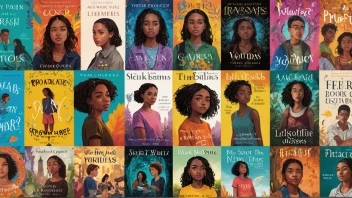Young adult (YA) literature has evolved dramatically over the years, emerging as a powerful medium that not only captivates young readers but also reflects the complexities of contemporary society. As adolescents navigate their formative years, the issues presented in YA novels resonate deeply with their experiences and challenges. This article explores five significant ways in which young adult literature mirrors the societal issues we face today, offering insights into the themes and narratives that shape the genre.
1. Mental Health Awareness
In recent years, mental health has become a focal point in discussions surrounding youth and well-being. YA literature has responded by incorporating themes of mental illness, anxiety, depression, and the importance of seeking help. For example, novels like 13 Reasons Why by Jay Asher and The Perks of Being a Wallflower by Stephen Chbosky have opened up conversations about these critical issues, allowing readers to empathize with characters who face similar struggles.
2. Identity and Diversity
As society becomes increasingly aware of the importance of representation, young adult literature has begun to reflect a diverse array of identities. Books such as Simon vs. the Homo Sapiens Agenda by Becky Albertalli and The Hate U Give by Angie Thomas explore themes of race, sexuality, and gender identity. These narratives help to validate the experiences of marginalized groups, encouraging readers to embrace their individuality and advocate for inclusivity.
3. Social Justice and Activism
The rise of social movements has found its way into the narratives of young adult literature, showcasing the power of activism among youth. Titles like Dear Martin by Nic Stone and All American Boys by Jason Reynolds and Brendan Kiely address issues such as racial inequality and police brutality. Through these stories, readers are not only informed about societal injustices but are also inspired to take action in their communities.
4. Technology and Digital Culture
In an age dominated by technology and social media, YA literature often explores the impact of digital culture on young lives. Novels like Turtles All the Way Down by John Green delve into the complexities of online interactions and the pressures of maintaining a digital persona. These stories resonate with readers who grapple with the duality of their online and offline selves, raising questions about authenticity and connection in a tech-driven world.
5. Climate Change and Environmental Awareness
As global concern for the environment grows, young adult literature has begun to address themes of climate change and ecological responsibility. Books like Hoot by Carl Hiaasen and Parable of the Sower by Octavia Butler present dystopian futures that stem from environmental neglect, prompting readers to consider their role in protecting the planet. These narratives not only entertain but also educate young readers on the importance of sustainability.
Young adult literature serves as a mirror to contemporary societal issues, allowing young readers to engage with complex themes in a relatable manner. From mental health and identity to social justice and environmental awareness, YA novels provide a platform for discussing important topics that resonate with today’s youth. By immersing themselves in these stories, readers can foster empathy, understanding, and a passion for social change.






